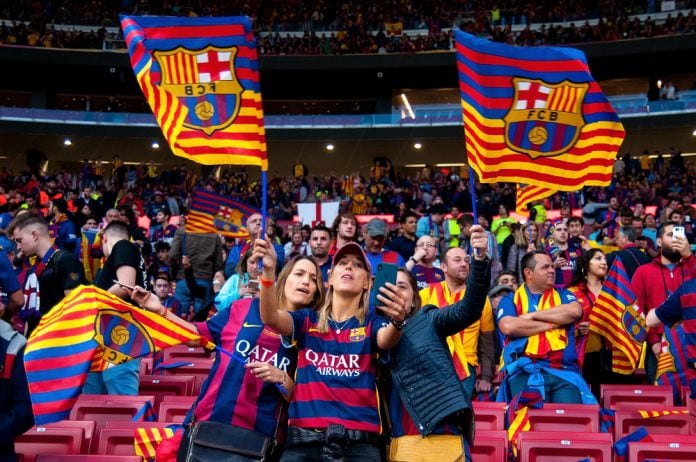FC Barcelona topped Deloitte’s Football Money League for the first time after the professional services firm released the 24th edition of revenue rankings.
It has been estimated that the COVID-19 outbreak will cost the world’s top clubs approximately €2 billion in revenue, having had broadcast and matchday income streams temporarily switched off.
The La Liga giant, which was forced to make wage cuts by around 40% after the governing body reduced salary caps, claimed the top spot despite challenges posed by the COVID-19 pandemic. Last year, Barcelona surpassed a record €800m revenue record but this year, the club saw the second biggest revenue drop.
Barcelona’s top flight rivals Real Madrid followed in close second, with a €200,000 gap separating the two teams. However, Real experienced an 8% increase in commercial revenue after taking advantage of in-house activations and opportunities during the coronavirus crisis.
Revenue for the top 20 highest earning football clubs across the globe dipped by 12% in 2019/20, compared to the 2018/19 season, generating a combined total of €8.2 billion. The top clubs experienced a 23% decrease in broadcast revenue and a 17% drop in matchday revenue after the respective leagues were suspended or cancelled.
“Whilst no football club has been immune to the challenges of COVID-19, and other clubs have suffered more in relative terms, those in the Money League have borne the greatest financial impact in absolute value terms,” explained Dan Jones, Partner in the Sports Business Group at Deloitte. “In this year’s edition, the top 20 clubs generated an average of €409m per club, a decline of €55m compared to 2018-19 (€464m per club).
“The safe return of fans to stadia in significant numbers is one of the highest priorities across global football. Matchday operations are a cornerstone of a club’s business model and help drive other revenue-generating activity.
“Fans’ absence will be more fully reflected in next year’s Money League. The final size of the financial impact of the pandemic on football will depend, in no small part, on the timing and scale of fans’ return.”
Bayern Munich re-entered the top three for the first time since the 2013/14 season, usurping Manchester United. The Champions League winners achieved the smallest revenue decrease out of the top 10 clubs, and the structure of the Money Football League remained largely the same as last year’s rankings, with 18 out 20 of the clubs featuring in last year’s composition.
The Premier League’s Manchester United and Liverpool placed fourth and fifth respectively, and Manchester City, Paris Saint-Germain, Chelsea, Tottenham Hotspur and Juventus made up the remaining top 10.
“The events of the past year have challenged the ability of clubs to drive their own revenue growth,” Jones continued. “Any short term ambitions they may have had will likely only be achievable as medium term goals once fans return to stadia and the effect of the pandemic on the global economy and the path to recovery from it becomes clearer.
“The full financial impact of COVID-19 may not be realised for years to come, with continued uncertainty forcing existing and potential broadcast and commercial partners to consider their investment into sport.
“Positively for the Football Money League clubs, the global pandemic has highlighted the importance of sport to communities and wider society, reinforcing its fundamental strengths and value to broadcasters and sponsors.”
























